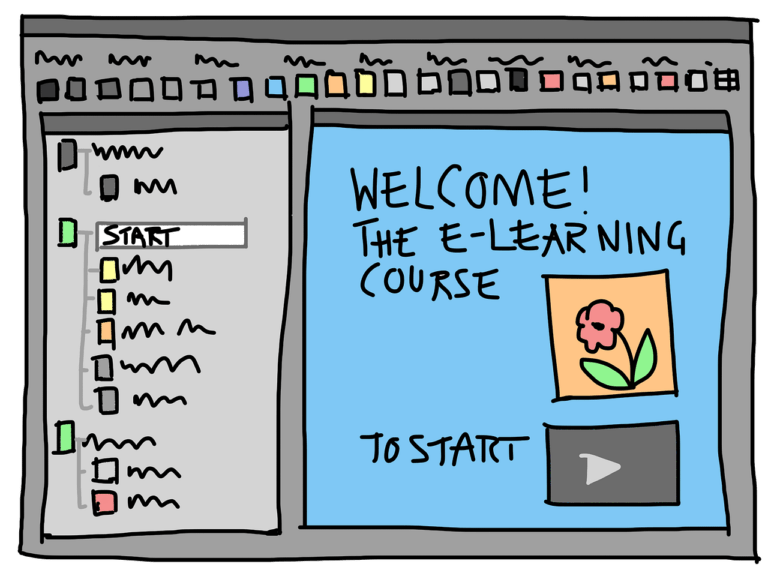Instructional Design Jobs: Unlocking the Power of Learning

Instructional design jobs are crucial in today’s evolving educational world. These professionals play a vital role in crafting engaging and effective learning experiences that cater to diverse learners and meet the needs of various industries. In this article, we will delve into the world of instructional design jobs, exploring the various roles and responsibilities associated with these positions, as well as the skills and qualifications required to excel in these roles.
Read: 6 Steps for Designing an Effective Sales Training Program for your Team
What Are Instructional Design Jobs?
Instructional design jobs involve the creation of instructional materials, such as training programs, educational courses, and multimedia content, to facilitate learning and skill development. These professionals use a range of techniques and tools to design and develop these materials, ensuring they are both informative and engaging for the target audience. Instructional design jobs require a deep understanding of adult learning theory, instructional strategies, and the latest technologies used in education and training.
Roles and Responsibilities
Instructional design jobs encompass a wide range of roles and responsibilities. Some common positions include:
- Instructional Designer: This role involves designing and developing instructional materials, such as training programs, educational courses, and multimedia content, to facilitate learning and skill development.
- Curriculum Developer: This role involves creating and implementing educational curricula for schools, universities, or corporate training programs.
- E-Learning Developer: This role involves designing and developing online learning materials, such as e-learning modules, webinars, and online courses.
- Training Manager: This role involves overseeing the development and delivery of training programs, ensuring they meet the needs of the organization and its employees.
Skills and Qualifications
To excel in instructional design jobs, professionals should possess a range of skills and qualifications. These include:
- Bachelor’s Degree: A bachelor’s degree in instructional design, education, or a related field is typically required for instructional design jobs.
- Instructional Design Certification: Many instructional designers choose to obtain certification in instructional design, such as the Certified Instructional Designer (CID) or the Certified Professional in Learning and Performance (CPLP).
- Technical Skills: Proficiency in authoring tools, such as Articulate Storyline or Adobe Captivate, and learning management systems, such as Moodle or Blackboard, is essential for instructional design jobs.
- Communication Skills: Strong communication skills are crucial for instructional designers, as they must effectively communicate with subject matter experts, stakeholders, and learners.
Career Advancement Opportunities
Instructional design jobs offer a range of career advancement opportunities. With experience and additional education, instructional designers can move into senior roles, such as:
- Senior Instructional Designer: This role involves leading a team of instructional designers and overseeing the development of large-scale training programs.
- Curriculum Director: This role involves overseeing the development and implementation of educational curricula for schools, universities, or corporate training programs.
- Training Director: This role involves overseeing the development and delivery of training programs, ensuring they meet the needs of the organization and its employees.
What are the Different Types of Instructional Design Jobs
There are a wide variety of instructional design jobs available, each with its own unique focus and responsibilities. Here are some of the most common types of instructional design jobs:
Entry-Level Instructional Designer
Entry-level instructional designers assist in the development of educational programs and materials. Their responsibilities include helping to design course content, creating instructional materials, and implementing educational technologies. This role provides an opportunity to learn from experienced professionals and gain a deeper understanding of instructional design.
Senior-Level Instructional Designer
Senior-level instructional designers are experts in the field, responsible for leading complex instructional design projects. They oversee the work of junior designers, collaborate with subject matter experts, and ensure the quality and effectiveness of instructional materials.
Instructional Technologist
Instructional technologists are responsible for the effective integration of hardware, such as computers and tablets, into the learning environment. They work directly with training department managers or faculty to determine how technology can enhance the learning experience while ensuring compliance with accessibility standards.
Training and Development Specialist
Training and development specialists plan, conduct, and administer corporate training programs related to employee development. They review training materials from different sources, evaluate current programs, and research new technology tools and resources.
Curriculum Developer
Curriculum developers focus on designing and revising educational curricula. They conduct research, collaborate with educators, and use their expertise in instructional design to develop comprehensive curriculum plans. This role is essential in ensuring that educational programs meet learning standards and are effective for diverse students.
Instructional Design Consultant
Instructional design consultants provide expert advice and services in the field of instructional design. They work with organizations to analyze learning needs, develop instructional strategies, and implement effective training programs. This role often involves project management and collaboration with different teams.
Director of Organizational Learning and Development
The director of organizational learning and development is a high-level executive responsible for overseeing an organization’s learning and development programs. They design and implement programs to develop employee skills, enhance performance, and drive organizational growth. This role requires leadership, strategic thinking, and an in-depth understanding of adult learning principles and organizational development.
Conclusion
Instructional design jobs play a vital role in the educational landscape, as they enable the creation of engaging and effective learning experiences that cater to diverse learners and meet the needs of various industries. To excel in these roles, professionals should possess a range of skills and qualifications, including a bachelor’s degree, instructional design certification, technical skills, and strong communication skills. With experience and additional education, instructional designers can move into senior roles, advancing their careers and contributing to the development of innovative and effective learning solutions.






